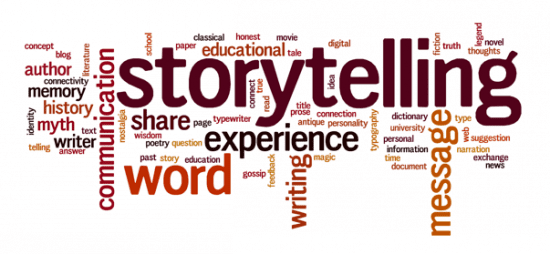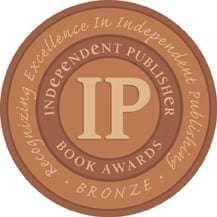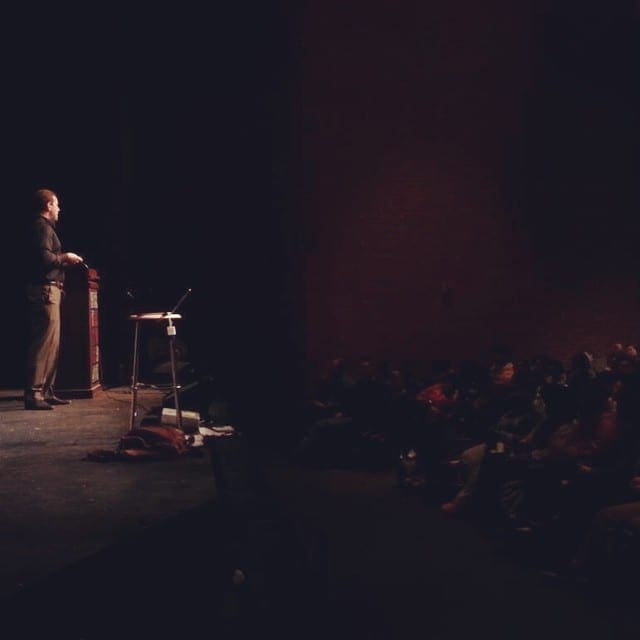
Doug will be a guest on the Island Time Radio Show with DJ DK and Amo on Monday, July 6 at 10 pm EST on 88.3 FM WBWC to talk about Outside In and why he chose to set the award-winning novel on South Bass Island in Lake Erie. They’ll be playing many of the Put-in-Bay songs along with their usual blend of trop rock, which is a mixture of rock-n-roll and country music blended with an island style theme and lyrics.
Island Time Radio is all about the music and laid back lifestyle of parrotheads and trop rock fans. It can be heard every Monday from 10 pm to 1 am on the air on WBWC 88.3 FM or online at wbwc.com and the tunein app. The show first aired in January of 2000. It is the longest, continuous running, Trop Rock show. 15 years on air, and counting.

Storytelling is muy caliente these days. Perhaps it’s because there are so many vehicles available to convey our stories or maybe it’s because with so much noise out there, the value of a good story to cut through the cacophony has never been more important. But regardless of the time or the medium, storytelling will always endure. From the campfire to the courtroom to the corporation, a good story, well told captivates, commands, and comforts. It connects people and communicates that we are not in this alone, reminding us that while we all have our flaws and foibles, we must still remember to laugh at ourselves and empathize with one another.
Unfortunately the recent emphasis on storytelling has not necessarily correlated to an increase in the quality of the stories we are hearing. Beyond the obvious observations like whenever a person says “To make a long story short”, it is never short, or “I have a funny story to tell you”, it is rarely funny, we are forgetting that stories are more than occasions to convey information, they are opportunities to inspire and share our passion. Here are some tips and suggestions to help improve your storytelling.
Common Storytelling Mistakes
1) Start at the Beginning of Time: We live moment to moment, but we tell a story through a narrative — an account of events and experiences communicated for a specific purpose. When asked to tell more about our products, companies or ourselves, avoid the temptation to start at the beginning with “We started in…” or “I was born in…”. Telling a story by recounting chronological events is the quickest way to put your audience to sleep. Everything has a date of origin. Be unique. Open your story at a pivotal moment, one that will entice and excite your audience. You can always fill in facts along the way.
2) Don’t Make It Personal Enough: Literary stories have a plot, setting, style, and themes, but most of all they have characters. A story without characters is just a description. As the storyteller, we are the link between the topic and our audience. Don’t hide behind the idea, product or brand and tell people what you think they want to hear. Share your connection. Disclose why you believe, what made you believe, and how those beliefs transformed you. The more you reveal of yourself, the more it will dissolve the walls your listeners are hiding behind, deciding if they trust you enough to believe the story you are telling.
3) Talking Too Much: One of the biggest fears of storytellers is to not be understood. The easiest way to mitigate this fear is with words. Inundating with facts and figures, restating our points over and over, and inserting tangential or irrelevant filler are all forms of talking too much. Even when we have honed and practiced our story into a riveting tale, when the lights come on and all eyes turn on us, our brains seemingly rebel and unleash other words and thoughts like a descending swarm. Remember to stay on point. Swat away the new and emerging content and trust the story you crafted. Elongate, don’t shorten the pauses. Your audience needs time to digest the savory, nutritious nuggets you are serving.
Storytelling Checklist
We all know traditional stories have a beginning, middle and an end — an Act I, II, and III. A good story will also be balanced. It will hook and pull in the audience, engage them in the journey, and deliver a reward for their investment. Use the following questions to evaluate whether your story contains the critical elements in the proper structure and flow to fulfill your purpose and satisfy the audience.
Beginning
- What was your goal or mission in starting this journey?
- What happened to finally get you to take action?
Middle
- When did you know there was no turning back?
- What was your greatest challenge along the way?
End
- What did you do to resolve the challenge?
- How will you use what you learned to help other people?
Storytelling is an art that requires practice. Fortunately we have opportunities all day long to improve our storytelling. Whether it’s catching up for coffee with a friend, explaining to our children why they should or shouldn’t do something, or asking our bosses for promotions, we communicate through stories. Try these suggestions to improve your storytelling and let us know what works and what didn’t and any other storytelling tips you recommend.

Outside In recently won an IPPY in the 2015 Independent Publisher Book Awards. Receiving a bronze medal in the Great Lakes – Best Regional Fiction category, Outside In is now a three-time award-winner, which also includes the 2014 USA Best Book Award and 2014 International Book Award.
The Independent Publisher Awards are presented by IndependentPublisher.com, “THE Voice of Independent Publishing,” operated by publishing services firm, Jenkins Group of Traverse City, Michigan. Launched in 1996, the “IPPY” Awards are designed to bring increased recognition to the deserving but often unsung titles published by independent authors and publishers. Established as the first awards program open exclusively to independents, over 3,000 “IPPYs” have been awarded to authors and publishers around the world.
Independent publishers are extremely diverse, in both style and geography. This year’s IPPY medalists represent 45 U.S. states plus the District of Columbia, six Canadian provinces, and ten countries overseas: Australia, New Zealand, Singapore, South Africa, Belgium, Denmark, France, Germany, Spain, and the United Kingdom.
 The editors at BookBub selected Outside In for its daily ebook deal email to run on Friday, March 20. For one week readers can purchase the Outside In ebook for $0.99 on Amazon, iTunes, and Barnes & Noble in the US and 1.27 CAD on Amazon Canada and £0.99 on Amazon UK. You can go directly to the ebook seller sites or signup for the BookBub email to take advantage of this special limited time offer.
The editors at BookBub selected Outside In for its daily ebook deal email to run on Friday, March 20. For one week readers can purchase the Outside In ebook for $0.99 on Amazon, iTunes, and Barnes & Noble in the US and 1.27 CAD on Amazon Canada and £0.99 on Amazon UK. You can go directly to the ebook seller sites or signup for the BookBub email to take advantage of this special limited time offer.
BookBub is a free service that helps millions of readers discover great deals on acclaimed ebooks while providing publishers and authors with a way to drive sales and find new fans. Members receive a personalized daily email alerting them to the best free and deeply discounted titles matching their interests as selected by our editorial team. BookBub works with all major ebook retailers and devices, and is the industry’s leading ebook price promotion service. BookBub was founded in 2012 and is headquartered in Cambridge, Massachusetts, USA. Click here to find out more about how BookBub works.
 Cooper presented two sessions on Outside In to over five hundred attendees at West Writers Week in St. Louis on Thursday, February 26. The presentations offered deeper looks into the story elements and research methods mixed with readings from the award-winning novel.
Cooper presented two sessions on Outside In to over five hundred attendees at West Writers Week in St. Louis on Thursday, February 26. The presentations offered deeper looks into the story elements and research methods mixed with readings from the award-winning novel.
West Writer’s Week is Hazelwood West’s annual celebration of writing during which published authors, teachers, and students share and discuss their work. Writers Week provides a unique and memorable experience for the students at Hazelwood West, one which is only offered to a handful of students nationwide. This event showcases the positive aspects of our students, school, and community, while showing students that writing is not limited to just the English classroom.





